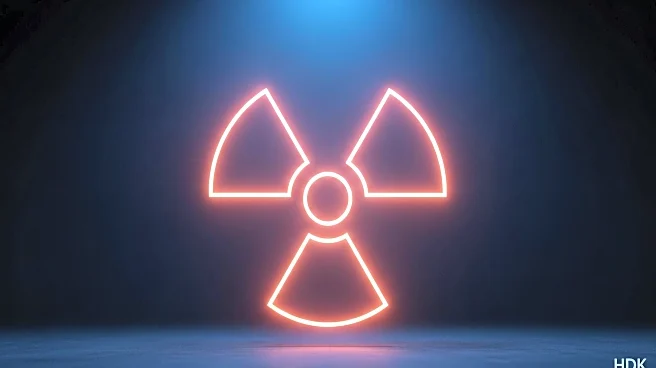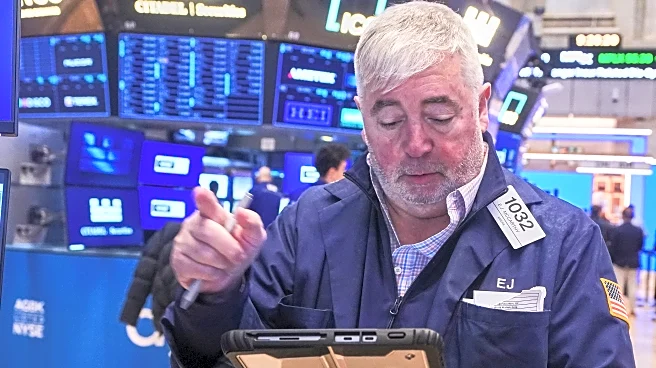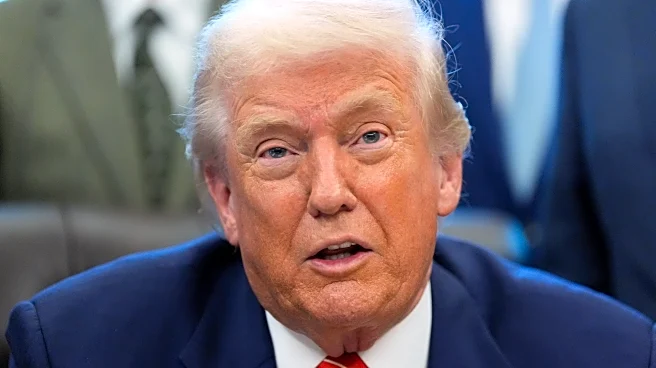What's Happening?
Iran is on the brink of facing renewed United Nations sanctions as the deadline for the 'snapback' mechanism approaches. This mechanism, part of the 2015 nuclear deal, allows for the reimposition of sanctions if Iran is found non-compliant. France, Germany, and the United Kingdom have declared Iran's non-compliance, triggering a 30-day countdown that ends on October 18. Iran's nuclear activities, including uranium enrichment to near-weapons-grade levels, have raised alarms among Western nations. Despite Iran's insistence on the peaceful nature of its nuclear program, U.S. intelligence suggests Iran is positioning itself to potentially produce a nuclear device. The situation is further complicated by recent military actions, including U.S. and Israeli strikes on Iranian nuclear sites.
Why It's Important?
The potential reimposition of U.N. sanctions on Iran could have significant geopolitical and economic repercussions. Sanctions would further strain Iran's economy, already under pressure from existing sanctions and regional conflicts. The move could also escalate tensions in the Middle East, particularly in light of the ongoing Israel-Hamas conflict. For the U.S. and its allies, the sanctions are a critical tool to curb Iran's nuclear ambitions and maintain regional stability. However, the involvement of major powers like China and Russia, who have supported Iran, adds complexity to the situation. The outcome could influence global oil markets, given Iran's role as a major crude oil supplier.
What's Next?
If the 'snapback' sanctions are enforced, Iran may face increased economic isolation and pressure to comply with international nuclear standards. Diplomatic efforts may intensify as Iran seeks to negotiate terms to avoid sanctions. The U.S. and European nations will likely continue monitoring Iran's nuclear activities closely. Meanwhile, Iran's response to potential sanctions could include further restricting inspections by the International Atomic Energy Agency, complicating diplomatic resolutions. The geopolitical landscape in the Middle East may shift, with potential impacts on alliances and regional security dynamics.
Beyond the Headlines
The situation highlights the ongoing challenges in balancing nuclear non-proliferation with diplomatic engagement. The historical context of U.S.-Iran relations, marked by decades of tension and conflict, underscores the complexity of achieving lasting peace and stability. The potential sanctions also raise ethical questions about the effectiveness and humanitarian impact of economic penalties on civilian populations. Long-term, the developments could influence global nuclear policy and the role of international organizations in conflict resolution.











